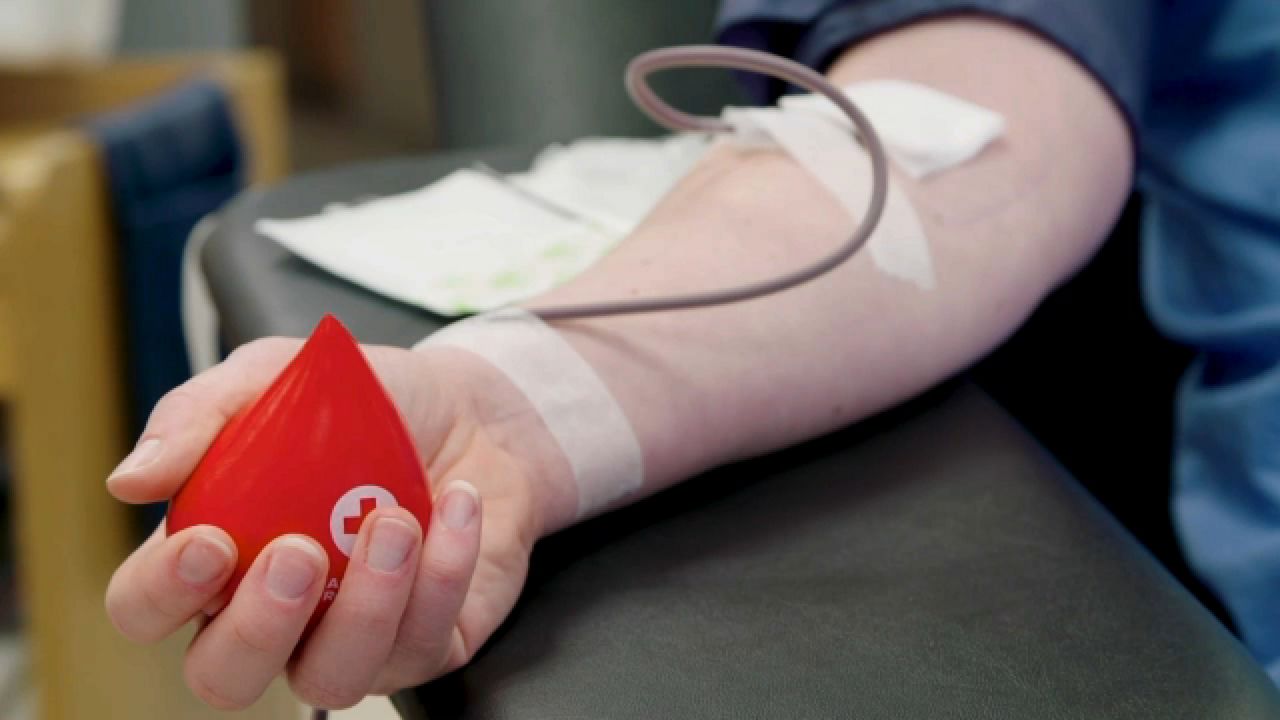LEXINGTON, Ky. — For the first time, the American Red Cross has declared a national “blood crisis.”
What You Need To Know
- 4.5 million Americans will need blood transfusion each year
- Females receive 53% of blood transfusions; males receive 47%
- Someone needs blood every two seconds
- One pint of blood can save up to three lives
COVID-19 is cited as the key reason that people are not showing up for appointments to donate. There are also staff shortages at blood centers. A report by the Red Cross said there was a 34% decline in new donors this past year, and some blood centers have less than a one-day supply of some blood types.
“If the nation's blood supply does not stabilize soon, life-saving blood may not be available for some patients when it is needed,” according to a press release by the Red Cross.
Mandy Brajuha, vice president of external relations at the Kentucky Blood Center in Lexington, said blood centers across America have been dealing with unprecedented blood shortages throughout most of the pandemic.
“Our ability to collect blood at schools and businesses with remote work and remote learning has been severely impacted,” she said. “These are some of our largest sources of blood. Hospitals continue to transfuse blood at levels above pre-pandemic usage. This creates an automatic deficit. With this happening across the country, it makes it harder for any blood center to recover since we can’t as easily rely on one another for help.”
Pleas for donations have been plentiful and far-reaching for the past 18 months but have increased considerably since the new year began, Brajuha said.
“We see some periods where donations increase, but then continue to face variables that have a negative impact,” she said. “The weather and recent COVID surge have made collections very difficult since the start of 2022.”
The obvious and more severe implication when blood shortages happen is hospitals do not have blood on the shelves to treat patients. Brajuha said blood centers would often see a great response to a disaster, such as 9/11 or recent tornadoes in western Kentucky. Those donations are significant and help restock the supply. Still, the blood on the shelves saves patients when a disaster strikes.
“There is no substitute for human blood,” she said. “If volunteer donors don’t roll up their sleeves, then hospitals don’t have the blood they need. This may force hospitals to postpone elective surgeries or make other tough decisions about using limited resources. We don’t make those decisions, but it’s our job to motivate people to pay it forward. You never know when someone you love may need blood, and I know we’d all want to know there was blood available if we were in that situation.”
Brajuha said donating blood is fast (less than an hour total), safe and good for your body. She encourages those who can donate to do so soon, and often – people are eligible to donate every 56 days.
“Don’t assume someone else will donate, do it yourself,” she said. “We have six donor centers throughout the state and mobile blood drives going out every day.”
Visit www.kybloodcenter.org or call 1-800-775-2522 for more information or to make an appointment.



